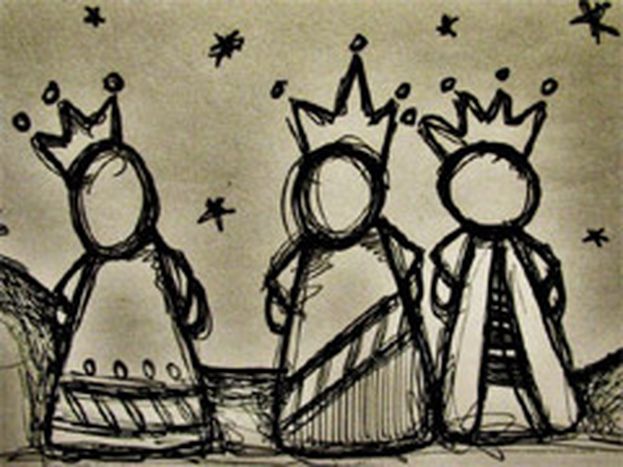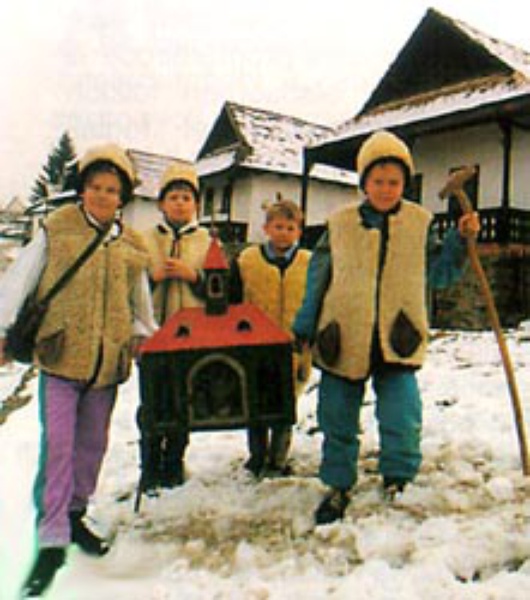
Hungarian Christmas – folk traditions
Published on
Written by Juli Kubát
In Hungary there are a lot of beliefs, superstitions, customs around Christmas time.
In the last decades most of the folk traditions has been disappeared from real life but symbolically we still commemorate them. 13th December, the name day of Luca has several folk tradition (It sounds weird, but yes, Hungarians do celebrate not only birthdays, but namedays as well.
You can read more about this custom here.). According to the folk tradition on that day the girls start making a stool. The stool is made slowly in secret for 13 type of wood and 13 peace of wood from 13 to 24 December for superstitons purposes on Chrismas night. (That’ why we have the idiom about if it is something is really slow: “that it is being made that slowly then Luca’s chair”). Then during the midnight service they step on the stool and they can realize who is the witch. After they throw it in fire and it protect them from witches.
The day of Luca is the day of “love predictions”: the girls keep 13 sheet of paper and they write on 13 boys name. Until 24 December they throw in fire each day one of them. Finally rest only one, and this boy will the future husband of the girl.
This day has a special meaning from the weather-forecats's point of view as well. On the basis of the following 12 days weather a prediction could be drawn on next year’s weather. For example: if 15th December was a rainy day that means next March would be rainy too.
In fact these traditions connected to Luca's day are not really held nowadays, especially in big cities. On the other hand beliefs on weather predection remained to be kept alive especially because Hungarians usually love supersitions.
 There is another tradition which is still popular nowadays. This is the Betlehem-play: young boys go from house to house with small model of the holy family and they perfom a short play about what happened that night. This is called pastoral play too.
There is another tradition which is still popular nowadays. This is the Betlehem-play: young boys go from house to house with small model of the holy family and they perfom a short play about what happened that night. This is called pastoral play too.
Besides, there is a very ancient tradition called “regölés” when folk singers of regős songs recital of old popular songs. This originate from the pre-Christian years when pagan strolling wanderers went from house to house singing songs for receiving some food. Now we can meet them only sporadicly in small villages. Older boys dress up, keep jingling chains and long crooks and performe like it happened in he past.



